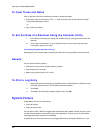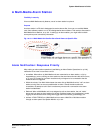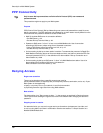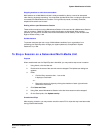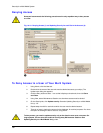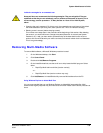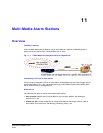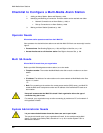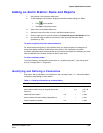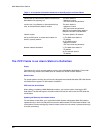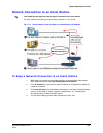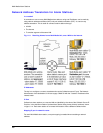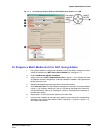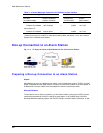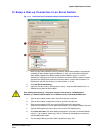
Multi-Media Alarm Stations
202
Checklist to Configure a Multi-Media Alarm Station
1. Adding an Alarm Station: Name and Reports, p. 203.
2.
Identifying and Defining a Connection. An Alarm station can be reached over either:
•
Network Connection to an Alarm Station, p. 205, or
•
Dial-up Connection to an Alarm Station, p. 208.
3.
Making an Alarm Station Operational, p. 202.
Operator Needs
What alarm station operators need from their Multi SA
View operators who deal with alarm stations can ask their Multi SA if their user account(s) have the
right to:
• Process alarms. See
Granting Rights, on p. 158, and Right to Use View, on p. 181.
• Access the sites set to call the alarm station. See
Right to Access a Site, p. 182.
Multi SA Needs
What a Multi SA needs from your organization
Before your Multi SA designates an alarm station, he or she needs:
• Telephone number. The number that Multi-Media units dial to reach a modem on an alarm
station.
- or -
• IP address. The address of an alarm station on the same network as Multi-Media units. See
figure
11–2, below.
- or -
• Both. For connecting to the modem of a remote access service (RAS) server, your Multi SA
needs the RAS server’s telephone number and IP address of the networked PC used as an
alarm station.
Honeywell recommends that Multi SAs check if their organization allows the type of
connection they plan to use.
For example, your organization may not allow connecting by modem to a PC on its network if
this bypasses a firewall.
System Administrator Needs
Let your network administrator know that alarms are sent to port 10,003.
This port should be left open in your organization’s firewall, for the sockets used by Multi
alarms. For other ports used by Multi, see table 3–7 on p. 49, in section System Tab in a
Maintenance Session.



